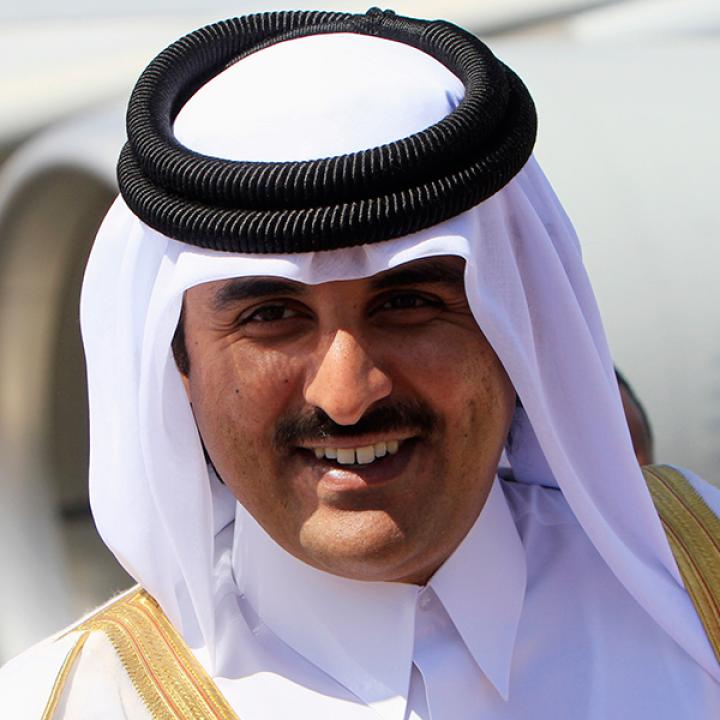

The chaotic events in Egypt are also a major test for Qatar, whose extensive diplomatic and financial support for Morsi's government now looks like overreach.
While the future of Egypt may be decided on the streets of Cairo and other cities, Qatar could play a crucial role in President Muhammad Morsi's ability to stay in power as well. The small Persian Gulf state was the first Arab country to recognize the initial post-Mubarak military government, and it has since been perceived as the ruling Muslim Brotherhood party's biggest backer.
The wisdom of investing so much prestige and treasure in Egypt now seems questionable. Qatar has become widely loathed by ordinary Egyptians, who believe, perhaps erroneously, that the emirate is using its enormous natural gas wealth to buy up Egyptian assets (including even the Suez Canal) at cheap prices. Similarly, the Brotherhood's political opponents accuse Qatar of funding the party and providing suitcases of cash to its leaders, while the United States and other countries are upset that Qatar is sending huge amounts of aid -- at least $5 billion, and perhaps as much as $8 billion -- without requiring changes to Cairo's economy-distorting subsidies. And back in the Gulf, Qatar's Arab neighbors hate its approach to Egypt as well, given their dislike of the Brotherhood.
All in all, Egypt has become a thorny policy dilemma for Qatar's new thirty-three-year-old ruler, Emir Tamim bin Hamad al-Thani, who took over when his father abdicated last week. He must now decide whether to continue financial support for Morsi or freeze it pending a political settlement with the opposition. Complicating this is Tamim's inexperience on the issue: although he visited Cairo not long after the revolution, when he was still crown prince, much of the emirate's policy of engagement with the new Egypt was led by Sheikh Hamad bin Jassim al-Thani, the prime minister and foreign minister whom Tamim dismissed last week. Yesterday, Sheikh Hamad, widely known as HBJ, lost his remaining top position as head of the Qatar Investment Authority, the country's $100 billion-plus sovereign wealth fund. His ouster has yet to be explained, though two months ago he had revealingly let slip, "I am at the end of my career."
Qatari officials continue to portray these changes as a smooth, planned transition. But the chaos in Egypt -- along with Doha's high-profile support for rebels in Syria and the new government in Libya -- would test the administrative capacity of far-larger countries, let alone Qatar's.
Speaking in Washington in April, HBJ pointed out that Doha began supporting Egypt financially before elections brought the Brotherhood to power. He emphasized his country's commitment to the Egyptian government, but noted, "Today they choose an Islamic government. Tomorrow they might choose another government...Whatever the people of Egypt decide, we will respect." He also stated, "We don't want anybody to interfere in our affairs in Qatar...We respect...the people's will in other countries." While Tamim is unlikely to feel constrained by HBJ's words, he would probably prefer not to alter the direction of Qatar's Egypt policy so early in his reign, since it is closely associated with his father, now officially known as the "Father Emir."
As for Washington, Qatar remains an important partner, providing a major air base for U.S. forces and sharing many general policy perspectives despite differing on the details at times. Although the situation in Cairo may be embarrassing for the new Qatari leader, Washington may still want to use the emirate's ebbing influence in Egypt. Earlier today, a U.S. Senate delegation led by John McCain and Lindsey Graham visited Tamim in Doha, and the meeting was no doubt an opportunity to learn what the new leader is thinking on Egypt, among other issues. Such information will be crucial as Washington looks for ways to help resolve the Egyptian crisis quickly.
Simon Henderson is the Baker fellow and director of the Gulf and Energy Policy Program at The Washington Institute.



